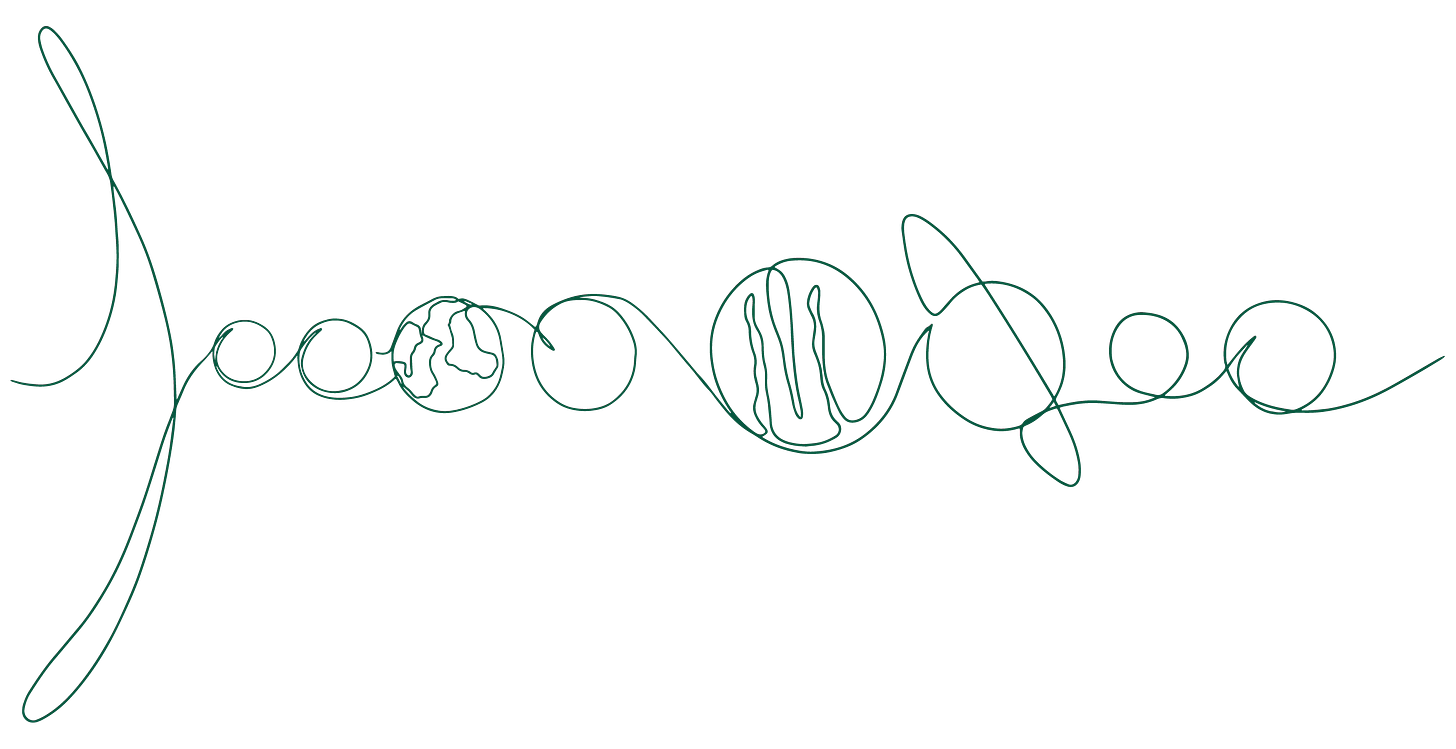Softening the narrative
What my Venus in Taurus taught be about identity, desire, and letting go...
A few weeks ago, I mentioned wanting to explore my Venus in Taurus placement; an area of my chart I often overlook. I haven’t fully considered how it contributes to my personality, or how it might challenge the self-image I’ve long held.
Studying Venus in Taurus has been unexpectedly difficult, not because I don’t relate to what I’m learning, but because it doesn’t align with the narrative I’ve built about who I am.
A recent Enneathought teaching explored this idea of self-narrative, saying:“All nine types are self-defeating within the paradigm of the personality structures as they are set up from childhood. The insanity of the personality is trying to make this impossible scheme work. We spend our whole lives trying to make it work and enlist other people to help us make it work.”
The narrative I’ve built, if I’m honest, paints me as intense, neurotic, and passionate. I love being in pursuit of something meaningful, often applying immense pressure to myself in the process, always overanalyzing, dreaming, pushing. My Aries Sun, Capricorn Moon, and Pisces Stellium affirm that story, at least on the surface. Despite all my introspection, it’s easy to squeeze myself into that familiar, smaller box.
Venus in Taurus adds context to my personality that doesn’t align with the personality structure I am comfortable inhabiting. Physical, calm, and steadfast, those with Venus in Taurus look to slow down the pace of work, relationships, and life in general so that they can take their time with their approach. Drawn to nature and things that engage their physical senses, they resist unnecessary worry and stress. While they can be stubborn, their patience and commitment to their own pace often pays off.
We all wear narratives, insisting the world meet us on our terms. But what I love most in close relationships is discovering the parts of someone that completely defy my first impression. Ultimately, the whole self emerges anyway, sometimes in spite of us. If that’s true, then what purpose do our fixed stories serve? Can we truly know what we want if we’re suppressing parts of ourselves that don’t fit the script?
What’s at stake in all of this, I think, is more than just self-awareness—it’s my capacity for wholeness. If I keep reinforcing a narrow version of who I am, I risk missing out on the softness, ease, and groundedness that might actually help me feel more at home in my own life. There’s an emotional cost to clinging too tightly to the parts of myself I’ve learned to perform well. And maybe the existential question beneath it all is: What kind of life becomes possible when I stop resisting the parts of me that want to feel good, safe, and slow? Not the life I’ve been grinding toward, but the one that’s been waiting patiently beneath all the noise.
Lauren Elkin’s Scaffolding explores this tension. She writes:“It’s less about your coming up with a narrative that explains and cures your symptoms and more about what might be suggested during the therapeutic process... how the way we talk about our lives encodes the way we think about them, the things we want, our desires, how we might learn to live with them instead of being led by them. You’ll never be cured, so to speak. There’s no cure for being human.”
I suppose that what I’m trying to do is to learn to talk about myself and my life differently, in a way that makes room for the parts of me I’ve ignored or resisted. Embracing my Venus in Taurus isn’t just about astrology; it’s about unlearning the pressure to be intense all the time, to always be striving, analyzing, chasing meaning. It’s about letting myself want slowness, comfort, pleasure—things that don’t fit neatly into the narrative I’ve clung to, but that feel deeply human. If there’s no cure for being human, then maybe the real work is in softening into all of who I am, even the parts that scare me with their unfamiliarity.
Thanks for reading.









I really liked this.